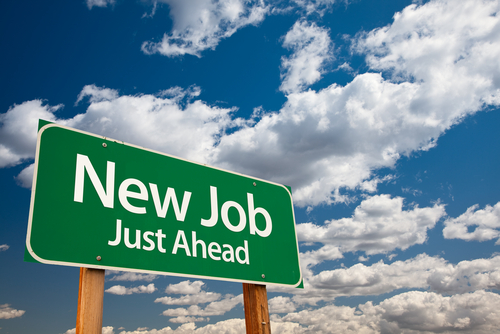The school year isn’t over yet, but I bet that hasn’t stopped you from thinking about what’s next! Most likely you’re eager to begin applying the knowledge you have accumulated over your college career and ready to go out into the workforce. However, after graduation I quickly learned that most employers require at least 1-3 years experience for entry-level jobs. Knowing what I know now, if I could turn back the hands of time, I would have done a few things differently. With that said, I offer a few nuggets of advice as a former college senior:
Internships, Internships, Internships
Most colleges and universities require you to do at least one internship before graduating. Unless you return to the same company each summer, or stick with them for more than a few months, one summer internship honestly isn’t enough. You learn just as much (if not more) from these “real world” experiences as you do from your classes. Employers are looking for people that have internship experience. While I know spending the summer in an office instead of outdoors just isn’t that appealing – I promise it pays off!
Don’t forget to Network Online
When I was in college Facebook was just gaining popularity, Twitter wasn’t heard of and LinkedIn wasn’t on the map in my social circle. Now there are 500 million people on Facebook, LinkedIn is over the 70 million mark and Twitter has over 145 million users. Take advantage of these websites and start talking. You can find great contacts, resume advice and everything in between.
Spend Time on Your Resume and Cover Letter
In many cases, your resume is what is going to get you in the door for an interview. It has to be concise, yet be able to highlight the reason why you are the best candidate for the job. The first thing you should know is that you might have to write a few different resumes, and tailor each one to the specific job you are applying for. If you have the skills the position is asking for, be sure to highlight that on your resume. Make sure employers can see immediately that you are a fit for the position.
A good cover letter is just as important. Don’t write a long letter explaining why you are right for the job, let your resume do that. Instead write a two paragraph introduction and figure out how to get the hiring managers attention without wasting their time. Try to stay away from exclamation points as well. I know you’re excited, but it is not professional and can actually stop the employer from looking at your wonderful resume. Make sure you find the name of the person who is going to be interviewing you, and address them personally in your letter. It will show you know how to research and if they included their name in the ad, know you read thoroughly.
Don’t Expect a Job To Fall Into Your Lap
Finding a job is a lot of work, and even more so right now. I know people who have looked for a job for a year before finding something using their degree. Now this might not be the case for you, but you need to realize it may not be as easy as you think. Because of the recession many people are out of jobs, and people with lots of experience are applying for entry level jobs—competing with you. It is going to take a lot of hard work to find a job right out of college so roll up your sleeves and get to work.
Hopefully you will find some of this useful and can apply it to what your college or university is teaching you as well. This is an exciting time in your life, and being prepared is half of the battle.
Shannon Suetos is an expert writer on time and attendance software based in San Diego, California. She writes extensively for an online resource that provides expert advice on purchasing and outsourcing decisions for small business owners and entrepreneurs such as time card software at Resource Nation.



